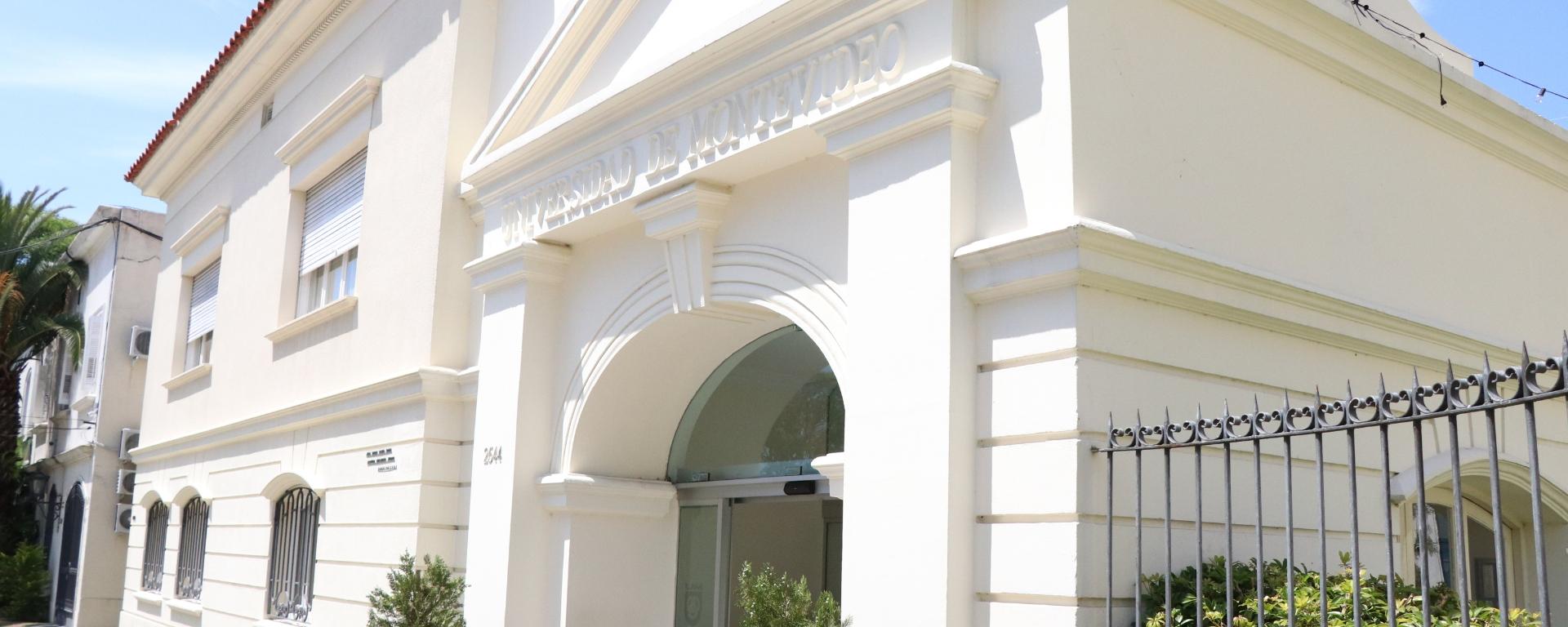Renowned Swiss academic and environmental activist visits the UM and suggests collaboration on environmental initiative

On August 28th, Dr Mathis Wackernagel, renowned Swiss academic and environmental activist, visited the Universidad de Montevideo. He was welcomed by Enrique Etchevarren, interim Rector of the University, gave a talk on the central campus of the University to Environmental Engineering students, and proposed that the UM join his biocapacity initiative.
Wackernagel, president and co-founder of the Global Footprint Network, is widely known for having developed the concept of the “global footprint”, a tool used to analyze the patterns of resources consumption and the waste production of a given population. He met with five professors from the Communication, Business and Economics and Engineering faculties to discuss his work in the Rector’s office.
It was Claudio Ruibal, professor from the Faculty of Engineering, who originally put the UM in touch with Wackernagel. “It was an important meeting to explore the possibilities of collaboration on the subject of sustainability and carbon footprint measurement.”, commented Ruibal. “The University approaches the topic of global sustainability from many angles: the sustainable economy, energy efficiency, clean production, the circular economy, sustainable construction, etc. We should take advantage of the opportunity to invite a global expert, and share what we do here at the UM, learn more about what Dr Wackernagel does, and think of actions were could collaborate on. In particular, we are interested in learning how Mathis measures carbon footprint and biocapacity.”, he added.
Alongside UM staff in this meeting were international figures in the sustainability field. Among them was Sebastián Navarro, General Secretary of Ciudades Capitales de las Américas, an organization that works in the promotion sustainable urban policies in Latin America. Also present were Wilder Leal and Santiago Sánchez, directors of the Fundación Ciudades, an organization dedicated to sustainable development of cities in the region. As was Dr Juan Pedro Lista, an expert in sustainability, who put forward his vision about possible collaborations between the UM and the institutions represented.
Opening the doors to a better future
In the meeting with Wackernagel, University members explained their lines of research and learned about an initiative lead by York University. “We are working closely with York University, who maintains the National Statistics on Footprint and Biocapacity. A collaboration with the UM would be incredible. And it was a pleasure to experience the quality of UM students at the lecture.”, expressed Wackernagel.
After their discussion, the guest gave a talk to students of Environmental Engineering, a course led by the director of the degree in Economics, Marcelo Caffera. In his lecture, Wackernagel highlighted the importance of Uruguay in the global context: “Uruguay is a fascinating country with solid political and academic institutions and it’s one of the wealthiest countries in the world, considering that natural capital is its biggest limiting factor. The country has five times greater biocapacity per person that the world average.”, he remarked.
